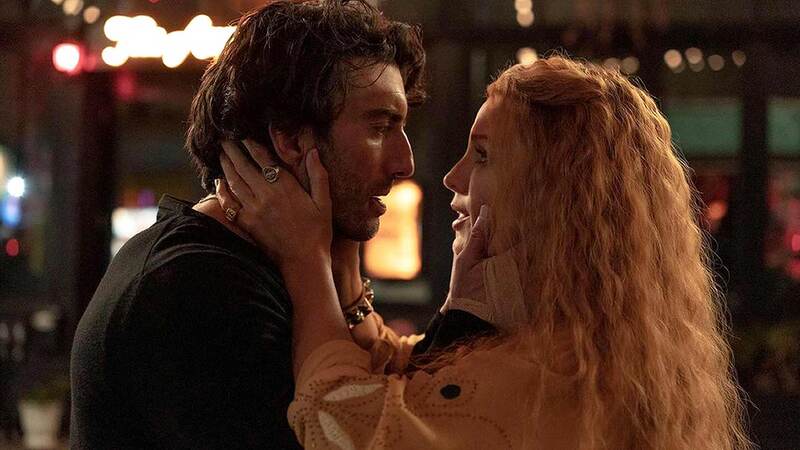You are viewing your 1 free article this month. Login to read more articles.
Why the Neros have zero poetry
It is no surprise that Caffè Nero’s new awards have ignored poetry, when the poetry establishment ignores most of the UK.
Caffè Nero has taken over where Costa fell, and is now the coffee chain specialising in a book award side-gig. It is no surprise to me, a former Caffè Nero Barista Maestro who was headhunted from Costa Coffee, that this would be the logical next step for the company.
I even spoke to the c.e.o. about this possibility in October last year. What has surprised people, though, is the lack of a poetry category, with various opinions as to why poetry was shunned thrown around on social media: poetry isn’t commercial enough, people don’t understand poetry, poetry doesn’t have a big enough readership.
From my perspective the issue isn’t that poetry doesn’t sell, because in fact most books don’t sell as well as people might expect. The issue isn’t that people aren’t equipped with the tools to get poetry; I can’t read music but I still love "Kind of Blue" by Miles Davis.
The problem is that poetry has failed to engage with the UK as a whole in terms of accessibility, and as such why would Caffè Nero include it as a category?
Growing up as a working-class kid in Redruth in Cornwall, one of the most deprived areas in Northern Europe, I never considered the arts to be something I could enjoy in my spare time, let alone be a potential career. It was something rich people did on their days off. The only poetry I saw growing up was daubed on the wall outside the abandoned South Crofty Mine: "Cornish boys are fishermen/Cornish boys are miners too/When all the fish and tin have gone/What are Cornishmen to do?"
The London bubble
We had a preacher visit our school once a month to give a talk, and on careers day an Armed Forces representative, a plumber and someone from the job centre. The poets were in London, celebrating at their London launches, with their London publishers, awaiting their London prize ceremonies. There was no chance it would inspire a generation to pursue it as a creative act when we weren’t being introduced to it outside English teachers explaining how to write a PEE paragraph for 20 marks on an exam.
I couldn’t have imagined I would eventually go on to work full-time running my own poetry publishing press, Broken Sleep Books. I only wrote my first poem at 16 because I had a crush on a girl and her boyfriend had written her a poem. Attempting to one-up him I wrote her one too, only for her to hand it back the next day with her boyfriend’s sincere and kind editorial suggestions plastered all over it.
There was no chance it would inspire a generation to pursue it as a creative act, when we weren’t being introduced to it outside English teachers explaining how to write a PEE paragraph for 20 marks on an exam
Last year saw the Forward Prizes hosted in Manchester, making it the first year they’d been hosted outside London in their 30-year history. If we want poetry to be read and enjoyed on a larger scale, we need to consider that there are people in Dumbarton, Carmarthen, Exeter, Grimsby, Penzance, Armagh, Derry, Dundee, and myriad other places who would love to be exposed to poetry.
Sir Andrew Motion called The Poetry Society "the heart and hands of poetry in the UK" but it is based in London, as is its Poetry Café. So, with the majority of the landmark poetry events and organisations based in London, the rest of the UK is geographically at a disadvantage.
Train tickets are extortionate, time off work to attend an event in London – coupled with an expensive overnight stay – adds up, and for those of us at a physical or mental disadvantage of attending far-off events it can be a non-starter. This means poetry seems to exist in a bubble that excludes access economically, geographically, and physically/mentally.
Pandemic’s purple period
It is clear the pandemic led to an increase in people taking part in poetry, either as readers or writers; The Literacy Trust found that more young people and children were writing poems (21%) during lockdown than before. This, in my opinion, is the result of a widespread engagement with accessibility in poetry, through Zoom readings, online ceremonies, and, for a short period post-lockdown, streamed in-person readings.
Suddenly poetry was more available than ever before, free from the realms of set texts and London literati. A mate of mine in Melton Mowbray could watch the same Manchester-based reading as I could in Ceredigion. Unfortunately, after the lockdowns ended so did the accessibility, and the capital’s draw loomed large again.
It is no surprise that Caffè Nero has chosen to ignore poetry as poetry has ignored the rest of the UK. There are some wonderful publishers and authors doing remarkable work with poetry in the UK, such as the likes of Tapsalteerie in Aberdeenshire, Peepal Tree Press in Leeds and Bad Betty in Nottingham. But until poetry establishments endeavour to ensure places like Aberystwyth, Lincoln, Scunthorpe, Forfar, Waterford, Omagh, Helston and Carlisle are exposed to poetry, it is doomed to be shunned by those who feel it is shunning them.
















